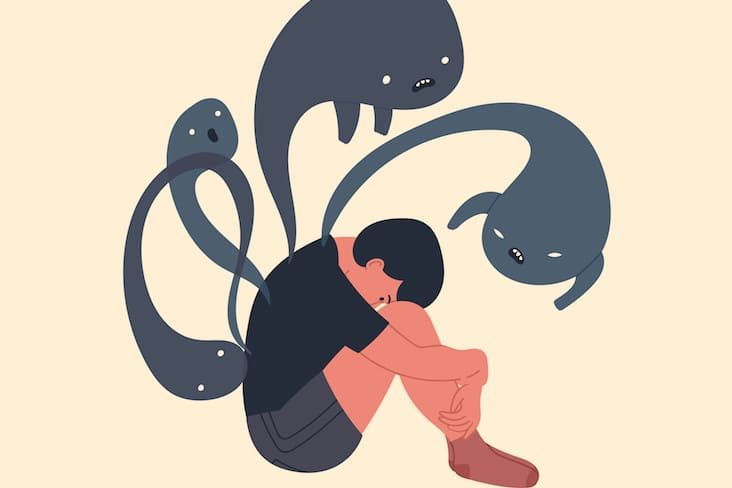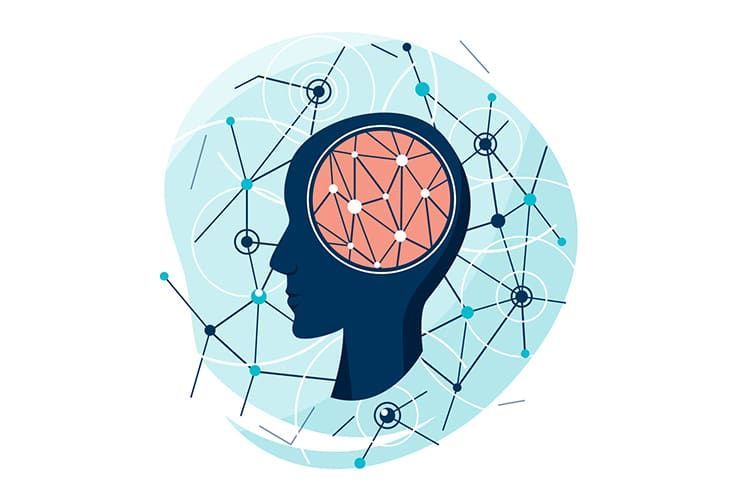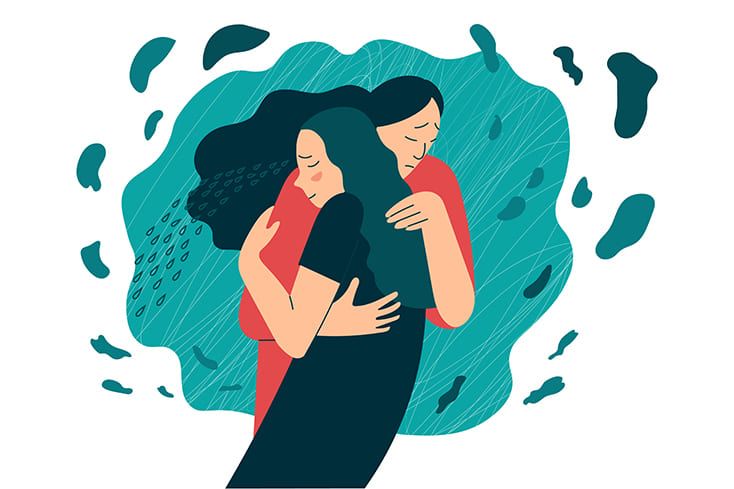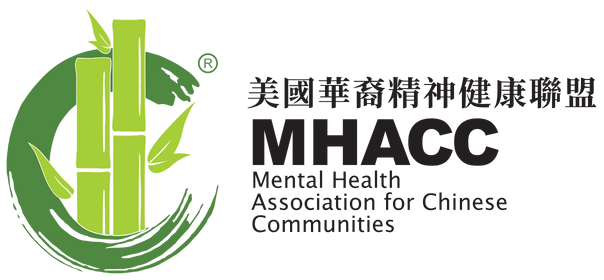如何在數量龐大的心理健康 App 中做出明智選擇 | How To Navigate the Overwhelming Volume of Mental Health Apps
MHACC 雙語部落格 Bilingual Blog
Scroll down for the English Version ⬇️
發佈日期:2021 年 6 月 23 日
作者:Sarah Lagan, B.S. 與 John Torous, M.D.
如同各種智慧型手機廣告所言:「什麼都有 App」,心理健康也不例外。越來越多的手機應用程式宣稱自己是心理健康工具,提供提升情緒、降低焦慮、甚至連結治療師等功能。有些甚至誇口幾天內就能讓你快樂指數上升百分之幾。
這類大膽的宣傳幾乎是這個蓬勃發展的心理健康應用程式市場的常態。但這些工具是否真的能兌現他們亮眼的承諾?對於正尋求數位支持的心理疾病患者來說,它們是否真的容易取得?
我們在哈佛醫學院數位精神醫學部門的研究與計畫顯示,使用這些 App 時確實存在一些問題與限制。不過,如果使用者能找到適合自己需求的 App,它們也有可能成為有效的心理健康治療輔助工具。
認識 App 的限制與挑戰
在下載心理健康 App 前,使用者需要先了解依賴數位照護的潛在缺點。
可近性(Accessibility)
心理健康 App 的能見度與受歡迎程度正不斷提高,例如搜尋「憂鬱」的 App 數量在過去一年就成長了超過 150%。然而,使用者仍面臨許多使用障礙。常見的問題包括:熱門 App 的主要功能藏在付費牆之後,必須訂閱才能完整使用;一些標榜「免費」的 App,其實只是提供有限功能來吸引你升級成付費版本。
穩定性與持續使用(Consistency)
另一個挑戰是使用者留存率(retention)。即使是最受歡迎的平台,也難以讓使用者長期使用。雖然有些研究與案例報告指出,App 對學習心理健康知識、追蹤症狀與自我管理可能有幫助,但實際上只有少部分使用者會長期使用。
針對性(Specificity)
也許最令人擔憂的問題,是多數 App 缺乏針對特定心理健康狀況的支援。我們的研究發現,當你在 App Store 中搜尋「思覺失調」或「雙相情緒障礙」等關鍵詞時,幾乎找不到提供專業資訊或支援的應用程式。相反的,使用者反而需要在大量無關、無效甚至帶有汙名的 App 中篩選。
專業性與可信度(Credibility)
另一個重要問題是:這些 App 如何呈現其功能的研究證據。有些 App 誇大宣稱「具實證基礎(evidence-based)」,例如聲稱採用了經科學證實有效的認知行為療法(CBT),但實際上並沒有真正依循該治療架構。
資料隱私(Privacy)
除了照護品質的問題外,使用者也必須考慮資料隱私的不確定性。由於目前缺乏 FDA 嚴格的監管,即使是下載量很高的 App,也可能存在隱性資料分享、未經授權的存取或資料用途問題。
將 App 視為輔助工具,而非替代方案
儘管有上述問題,心理健康 App 仍有潛力幫助人們,特別是當它們能作為傳統治療的輔助工具,並與使用者的偏好一致時。這些 App 應被視為用來強化與延伸照護的方式,而不是完全取代面對面的治療。
但要找到適合自己的 App——就像尋找合適的治療師、藥物或生活計畫——一樣困難。目前 App Store 上估計有約一萬個心理健康相關 App,要在茫茫搜尋結果中找到真正符合需求的工具,確實讓人感到壓力山大。
雖然 App Store 上的評分、下載數與使用者評論可以提供部分參考,但它們並不代表這款 App 具有臨床實用性。使用者也可能因為試了幾個 App 都不如預期而感到挫折。
那麼,問題來了:我們該如何找到適合的 App?
尋找合適的資源
作為研究的延伸,我們開發了一個可搜尋的心理健康 App 資料庫:「MIND」(Mental Health Index and Navigation Database)。MIND 讓使用者可依照自身最在意的條件篩選 App,例如隱私政策、費用、臨床基礎等,共有超過 100 項過濾條件可選擇。
我們的目標是協助使用者根據自己的偏好、背景與臨床需求,找到最合適的 App。我們不將任何 App 貼上「好」或「不好」的標籤,而是透過搜尋工具來找出哪些 App 符合某位潛在使用者的條件。
找到合適的 App 是一種很棒的感覺,但這只是運用數位工具改善心理健康的第一步。我們哈佛醫學院的團隊創建了一個數位診所,協助人們將面對面治療與 App 結合起來。
我們也發現,對數位工具不熟悉是一大障礙,因此我們推動數位素養訓練,在社區健康中心與心理康復機構舉辦工作坊,幫助有心理疾病的人更容易接觸數位資源。我們還設計了一個新的照護角色——「數位導航員(Digital Navigator)」,幫助病人與醫療人員一同理解 App 並找出合適工具。這些都是可共享的模式,因為打造可近、可用的數位資源對於實現心理健康的數位平權至關重要。
雖然「提升快樂指數」聽起來吸引人,但這絕非一體適用的解方。不過,越來越多的工具確實有潛力協助人們找到符合需求的數位資源。隨著新型數位診所與系統的興起,下一步關鍵是:確保所有人都能平等使用。
作者介紹
Dr. John Torous 是精神科醫師與臨床資訊學專家,目前擔任 Beth Israel Deaconess 醫療中心數位精神醫學部門主任。
Sarah Lagan 是聖地牙哥加州大學(UCSD)醫學生,曾任該機構心理健康 App 評估計畫負責人。
註:MIND 計畫由 Argosy Foundation 慈善基金贊助。
Date published: June 23, 2021
Authors: Sarah Lagan, B.S., and John Torous, M.D.
Original Source: https://www.nami.org/complimentary-health-approaches/how-to-navigate-the-overwhelming-volume-of-mental-health-apps/
As any smartphone commercial will tell you, there is an app for everything — and mental health is no exception. More and more mobile apps are advertised as mental health tools, offering features to improve your mood, decrease your anxiety or connect you with a therapist. Some even promise to boost your happiness by a certain percentage in just a few days.
Bold claims like this are commonplace in the burgeoning mental health app marketplace. But how well do these tools deliver on their flashy promises? And are they readily accessible for people with mental illness seeking digital support?
Research and our initiatives at the Division of Digital Psychiatry at Harvard Medical School suggest that there are issues and limitations that app users need to be aware of. However, certain apps have the potential to be a successful supplement to mental health treatment if users find the right program to fit their individual needs.
Understanding Apps’ Limitations and Challenges
Before downloading mental health apps, users must consider the drawbacks of relying on digital care.
Accessibility
While mental health apps are rising in visibility and popularity, with app searches for depression up over
150% in the last year, users still face accessibility barriers. Often, features of popular mental health apps are hidden behind a paywall, meaning that users have to pay a hefty subscription fee to access the full array of content. Additionally, apps claiming to be “free” may be offering a limited version to entice you to sign up for the paid version.
Consistency
Another challenge mental health apps must confront is retention rate, as even the most popular platforms aren’t seeing their users stick with their services. While some
studies and
case reports have shown that apps can be a valuable tool for people with mental illness to learn about mental health, track symptoms and self-manage conditions,
only a small portion of users return to the apps for a long period of time.
Specificity
Perhaps the most concerning challenge surrounding mental health apps is the lack of specialized support for commonly searched mental health conditions. Our research found that an app store search using terms like “schizophrenia” or “bipolar disorder” does not return a significant number of apps that offer specialized education or support for these conditions. Instead of finding helpful resources, people still have to wade through many irrelevant, ineffective and stigmatizing apps.
Credibility
Another critical issue with apps is how they present research surrounding the efficacy of their features. Accordingly, users need to be aware that some mental health apps make
exaggerated claims that they are “evidence based.” In other words, apps may claim to follow legitimate treatment methods, such as cognitive behavioral therapy, that are proven to help people — when in fact, they are not.
Privacy
Beyond issues of apps’ ability to provide quality care, users need to take into account the uncertainty surrounding data privacy. In the absence of stringent FDA oversight, even widely downloaded apps have raised
concerns around privacy around undisclosed sharing, access and use of mental health data.
Thinking of Apps as a Complement to Care
Despite these concerns, apps have potential to help people, especially when used as a tool in conjunction with treatment, and in a way that aligns with a user’s specific preferences. It’s essential to think of apps as a means to boost and extend care, not replace it.
However, finding the right app — like finding the right therapist, medication and lifestyle plan — can be tricky. With an estimated 10,000 mental health apps in the app stores, it can be overwhelming to comb through every search result to find the one with the tools and features you’re seeking.
While app store metrics (like stars, number of downloads and qualitative reviews) can provide some insight to apps’ popularity, they don’t necessarily indicate clinical utility or usability. Users can also get discouraged by trying a variety of apps that don’t meet their expectations and preferences.
So the question becomes: how can people find the right app?
Finding the Right Resources
As a follow-up to our research, we have developed a searchable database of mental health apps. MIND (the Mental health Index and Navigation Database) allows individuals to sort through mental health apps using the criteria that matter most to them. They can choose from more than 100 different filters across areas, ranging from privacy to cost to clinical foundation.
Ultimately, we hope this can be a tool to help individuals find the right mental health app given their unique preferences, personal background and clinical needs. Rather than designating any app as “good” or “bad,” the searchable database can identify which apps meet a potential user’s criteria.
Finding the right app is a great feeling, but it is only one step (of many) toward using technology effectively in the mental health field. Our team at Harvard Medical School has pioneered a digital clinic, where we help people supplement traditional face-to-face care with apps.
Recognizing that lack of familiarity may be a barrier to fully integrating technology into care, we’ve also spearheaded digital literacy trainings, conducting workshops at community health centers and clubhouses that serve people with mental illness. We’ve introduced a new member of a care team, the digital navigator, who can help both patients and clinicians navigate the app space and identify suitable tools. These are sharable programs, as creating accessible digital clinics and resources is critical for ensuring digital health remains equitable.
“Increasing happiness,” as apps may claim to do, is not a one-size-fits-all approach. However, a growing number of tools have the potential to help individuals find digital tools that align with their preferences and meet their expectations. As new digital clinics and ecosystems begin to emerge, ensuring that they’re accessible to everyone will be the next priority.
Dr. John Torous is a psychiatrist and clinical informaticist who directs the Division of Digital Psychiatry at Beth Israel Deaconess Medical Center.
Sarah Lagan is a medical student at UC San Diego and prior director of app evaluation at the Division of Digital Psychiatry at Beth Israel Deaconess Medical Center.
Author’s Note: the MIND project is supported by a philanthropic gift from the Argosy Foundation.
Sign up for our Newsletter
訂閱每月簡訊獲得最新資訊
Contact Us












